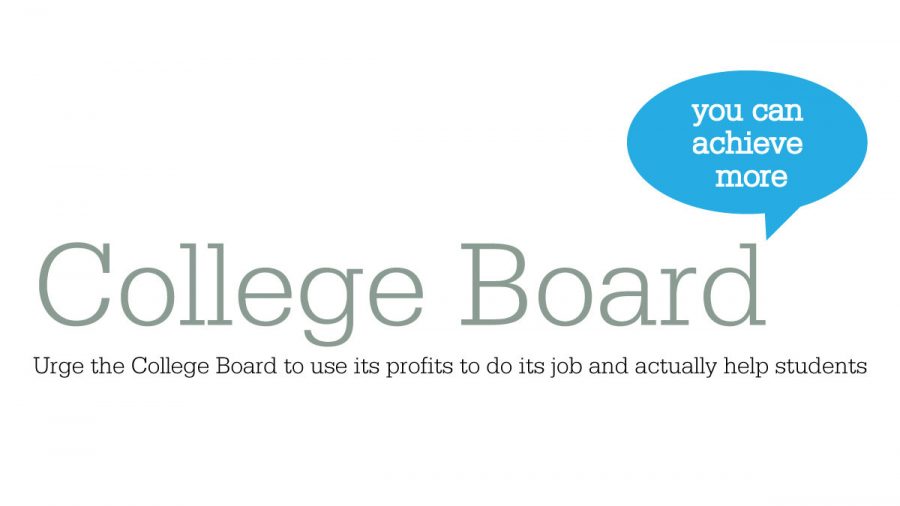It’s mid-January, and your mom says you have to register for the SAT. You’re on the College Board website, and the SAT registration fee costs $45. But wait, you should probably take the SAT with Essay because some of the colleges you’re applying to require it. That makes it $57. After checkout, the College Board says you should be prepared for the test, so you buy an Official SAT Study Guide for $31.99. Now your mom is recommending you take the Mathematics Level I and II SAT Subject Test because you want to be a math major. That’s $26 for the registration fee, and $20 for each test so…$66. By March, you’ve received every score, and a cringe lines your face. Your mom tells you to register for all the tests again, and you do, while slowly draining your credit card account by $168.
When former College Board president Gaston Caperton told The New York Times that the College Board’s mission was, “to connect all students to college opportunity and success,” he failed to mention the high testing fees that often deprive the student community of educational benefits. College Board calls itself “non-profit,” and yet it makes up to $62 million per year in profit, and $200 million in revenue, hyping up student anxiety with expensive prep books, “Rush Shipping,” the “SAT Question-and-Answer Service,” and other score verifications. How could a so-called “nonprofit” help students if its president was making near $1.3 million and its executives an average of $355,271 in 2012?
Claiming to serve the public since 1900, the College Board still remains a private company with private interests, profiting from all testing programs. The Huffington Post called it “de-facto privatized,” meaning that the company’s public purpose is merely a play for bright-eyed college bound teenagers…and an excuse not to pay taxes. Another thing to consider is how the College Board has not only monopolized the test taking industry, but nationwide educational curriculum. State and local governments invest in its programs with direct payments and testing fees without even questioning that it has become a for-profit board of education. In Fall 2014, the Jefferson County school board in Colorado rejected the College Board’s AP U.S. History framework, claiming an out-of-state company should not be imposing curriculum with a leftist bias. Even forcing the College Board to revise the framework would be fruitless, as teachers teaching AP courses are known to “teach to the test” and will continue to do so to maintain a high student pass rate.
Investing in public education should mean hard work, not actual investing. Despite fee waivers for those who apply, SAT success depends on wealthy students who essentially “buy” their score through expensive test prep courses and services. Colleges then give weight to those SAT scores in their admissions decisions, further amplifying the advantages of privileged kids.
Until recently, the College Board expanded the availability of AP courses into low socioeconomic areas. While this makes college credit more accessible in high school, it encourages students to pursue financially and emotionally demanding tests rather than exploring fields that involve creativity and critical thinking.
What’s more is the “cringe factor,” the point of not liking your score and assuming that improvement comes from “buying” a second chance, a third chance, and so on. You trade your dollar bills for a shiny AP score on your transcript, and–SPOILER ALERT–your intellect becomes less valuable than your wallet. So why has our student culture grown accustomed to purchasing grades as opposed to earning them? Students relying on a private company to determine whether or not they get into college? Only low-income students enrolled in federal, state or local programs can receive waivers on these tests, while others remain in a price predicament that affects their future education.
Perhaps the student community has become comfortable with the costs of going to college. Maybe even public institutions have figured that the College Board’s profits are “invested back into [their] programs and services,” as Caperton claimed. Either way, you should think twice about financing a private entity that may or may not have a personal agenda.
Before you know it, it’s mid-June, and your mom says it’s time to register for the SAT in September. But you wonder now if your $57 is paying for your test booklet or the new Porsche of a College Board executive. You then ask your mom who generously decided to pay this time, but it’s too late. She already has her credit card and is punching in the numbers like it’s just another session of online shopping.


